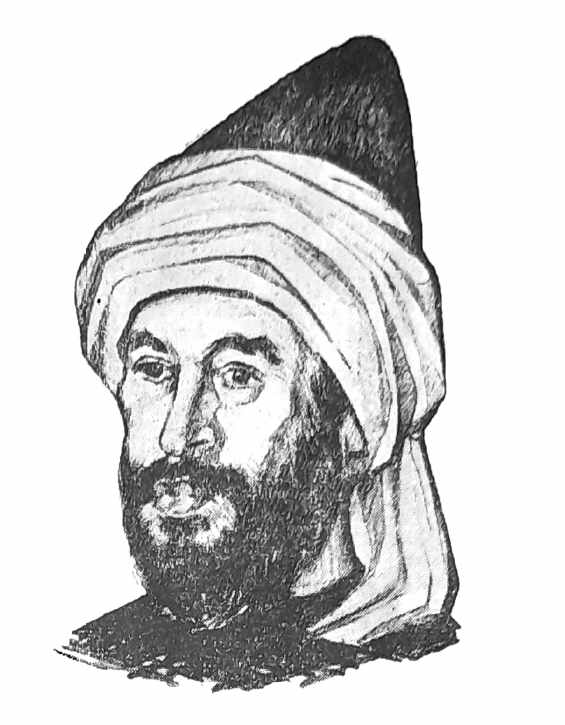Muhammad ibn Musa Al-Khwarizmi - Father of Algebra
Mathematician
Born: Approximately 780 AD, Persia
Died: Approximately 850 AD, Baghdad, Iraq
Muhammad ibn Musa al-Khwarizmi was a Persian mathematician, astronomer, and geographer whose groundbreaking work in algebra and algorithms shaped modern mathematics and science.
Muhammad ibn Musa al-Khwarizmi, born around 780 AD, was a Persian mathematician, astronomer, and geographer who is sometimes called the father of algebra. Although his exact birthplace is unknown, his name suggests he came from Khwarazm, an area now part of Turkmenistan and Uzbekistan. He grew up during a time of great learning and went on to become one of the most influential thinkers in world history.
Al-Khwarizmi worked at the House of Wisdom in Baghdad, the capital of the Islamic Empire, and eventually became its director. This center of learning collected and translated many important Greek and Indian texts into Arabic. Muhammad used these works to create his own original contributions to math, astronomy, and geography, which would shape knowledge for many centuries.
He is best known as the founder of algebra. The word “algebra” comes from the Arabic word al-jabr, meaning “restoration,” found in the title of his famous book Al-Kitab al-Mukhtasar fi Hisab al-Jabr wal-Muqabala (The Compendious Book on Calculation by Completion and Balancing), written around 820 AD. The book introduced new ways to solve equations, including methods called reduction, completion, and balancing. Reduction simplifies an expression, completion moves a negative term to the other side of an equation, and balancing means subtracting the same amount from both sides. Using these methods, al-Khwarizmi also created a systematic approach to solving quadratic equations in ways that had never been explained before.
In addition, Muhammad helped spread the Hindu-Arabic numeral system, the numbers 0 through 9, which replaced earlier, more complicated number systems. This system was first adopted in the Islamic world and later in Europe after translations of his works. Al-Khwarizmi also developed methods for multiplying large numbers, including the lattice multiplication method, which helped European mathematicians like Fibonacci learn and share his work with others across the continent.
Al-Khwarizmi made major contributions to astronomy as well. He developed the first quadrant to tell time by observing the sun or stars and created the Zīj al-Sindhind, a set of astronomical tables that calculated the positions of the sun, moon, and planets and predicted eclipses. He improved sundial designs and influenced how mosques used them to determine prayer times accurately.
His work in geography was equally important. In Kitab Surat al-Ard (The Image of the Earth), he revised and expanded on the ancient Greek geographer Ptolemy’s maps, listing the coordinates of around 2,400 places across Europe, Asia, and Africa. He helped create a world map for the caliph al-Ma’mun and participated in a project to measure the Earth’s circumference as accurately as possible at that time.
Al-Khwarizmi’s influence reached far beyond the Islamic world. His algebra book was translated into Latin in the 12th century, helping spread his methods across Europe. A separate Latin translation of his arithmetic work introduced Hindu-Arabic numerals and their operations to Western mathematicians. The Latinized form of his name, “Algoritmi,” gave rise to the word “algorithm.” His astronomical tables were also translated and widely used in Europe for many centuries.
Muhammad ibn Musa al-Khwarizmi died around 850 AD in Baghdad, leaving a legacy that shaped mathematics, science, and geography. His methods of algebra, use of Hindu-Arabic numerals, and contributions to astronomy and mapping continue to influence the world today. Without his work, many of the technological and mathematical tools we rely on every day, including the algorithms behind computers and modern digital devices, would not exist.
SOURCES:
“Al-Khwārizmī.” Encyclopædia Britannica, Encyclopædia Britannica, inc., www.britannica.com/biography/al-Khwarizmi.
“Muḥammad Ibn Mūsā Al-Khwārizmī.” New Scientist, www.newscientist.com/people/muhammad-ibn-musa-al-khwarizmi/.
Keywords: Mathematics, Science, Creativity, Perseverance, Achievement, Responsibility, Make a Difference, Stand Up for Your Beliefs
Image Citation: Public Domain

